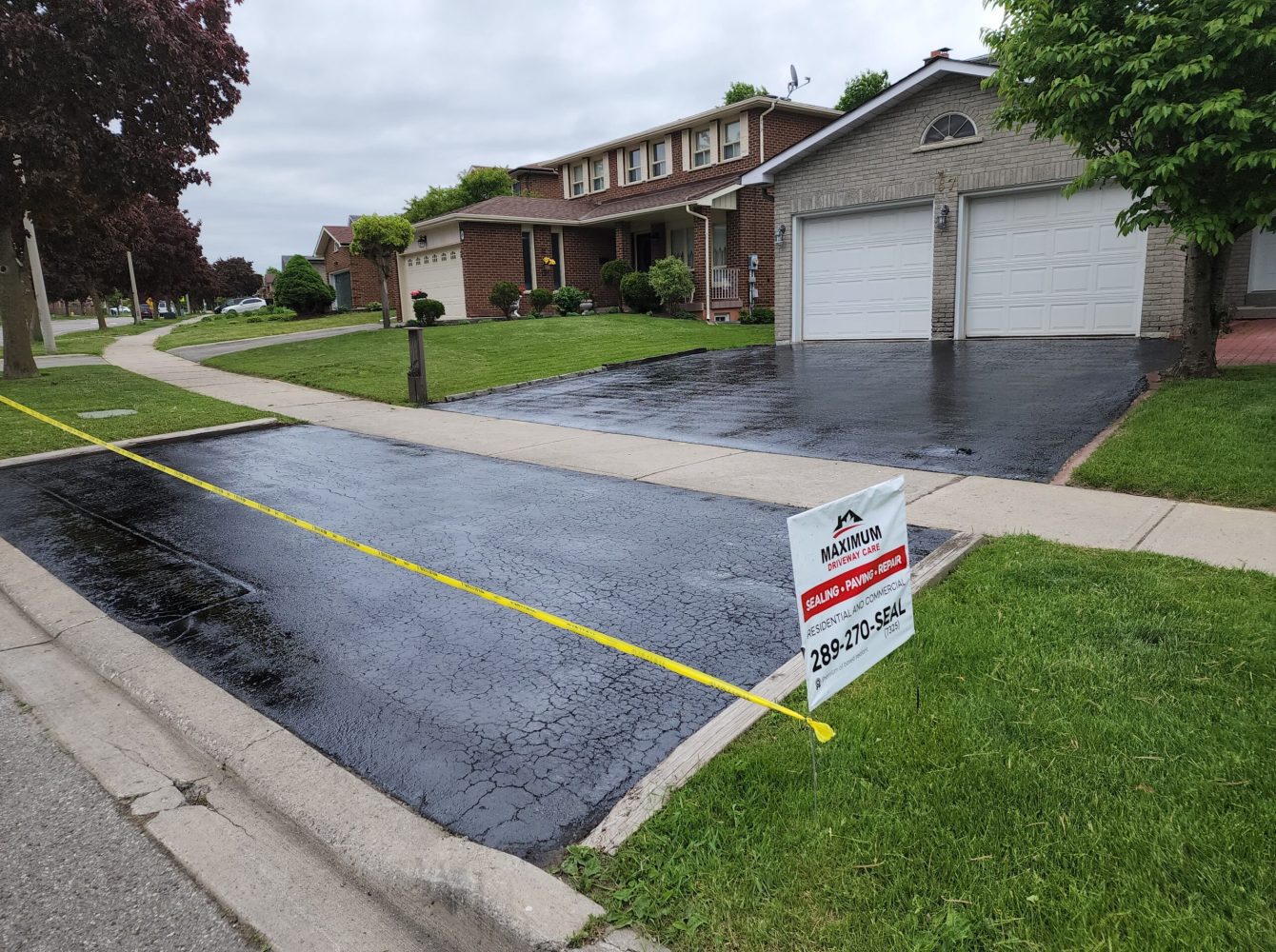Enhance Durability with Cold Mix Asphalt: Specialist Sealing Solutions
Enhance Durability with Cold Mix Asphalt: Specialist Sealing Solutions
Blog Article
Cold Mix Asphalt Vs. Hot Mix Asphalt: Which Is Right for You?

Make-up Differences
Cold mix and warm mix asphalts vary considerably in their make-up, with unique features that impact their performance and applications. Cold mix asphalt is created by emulsifying the asphalt binder with water and an emulsifying representative before mixing it with accumulation. This approach enables the asphalt to be convenient at reduced temperature levels, making it perfect for short-term repairs and for usage in colder weather conditions. Hot mix asphalt, on the other hand, is produced at heats, typically between 300-350 ° F, which assists to accomplish far better compaction and an extra durable end product. The hot mix asphalt production process involves heating up the aggregate and asphalt binder individually before integrating them at the asphalt plant.
Additionally, chilly mix asphalt has a tendency to be less dense and more flexible than warm mix asphalt. This adaptability makes it far better matched for locations with higher levels of motion, such as driveways or roads with heavy website traffic. In comparison, warm mix asphalt is understood for its high longevity and resistance to rutting and fracturing, making it a recommended option for highways and high-traffic roads where long life is critical.
Installment Process Variances
The procedure of mounting chilly mix and hot mix asphalt shows remarkable variations in their procedures and requirements. Cold mix asphalt, being a more adaptable product, can be used straight from the bag or container onto the pit or damaged location. It needs very little preparation work, such as cleaning up the location and compacting the cold blend with hand devices. This makes it a convenient alternative for temporary and fast fixes. On the other hand, hot mix asphalt demands a much more fancy setup procedure. It includes heating the blend to heats prior to laying it down on an appropriately ready base. The preparation consists of compacting the base, using a tack coat, and utilizing hefty machinery like pavers and compactors for a smooth and durable finish. Because of the home heating demands, warm mix asphalt installations are commonly performed by specialists with customized equipment, making certain a more structurally sound and long-term outcome.
Durability and Durability Aspects
When taking into consideration asphalt options, resilience and durability are important aspects to review for long-term sidewalk efficiency. Warm mix browse this site asphalt (HMA) is understood for its outstanding longevity and long life. The heats throughout the mixing and laying process enable far better compaction, leading to a denser and stronger sidewalk structure. This results in HMA being more resistant to hefty web traffic tons, severe weather, and the impacts of aging compared to cool mix asphalt (CMA)
In terms of longevity, HMA normally outperforms CMA as a result of its remarkable toughness and resistance residential or commercial properties. HMA pavements have a longer solution life, calling for less constant repair services and upkeep, which can equate to set you back savings over time. In addition, HMA sidewalks are more quickly personalized to satisfy certain task demands, additionally improving their toughness.
Cost Considerations
Taking into consideration the financial implications is a crucial element when reviewing the option between hot mix asphalt (HMA) and chilly mix asphalt (CMA) for sidewalk try here projects. While the initial cost of warm mix asphalt is commonly greater than that of cool mix asphalt, HMA often supplies an extra cost-effective service over time due to its remarkable longevity and long life. HMA is understood for its ability to hold up against rush hour lots and extreme climate problems, decreasing the requirement for frequent repair work and upkeep. On the various other hand, cold mix asphalt is a lot more inexpensive ahead of time however might require even more frequent patching and resurfacing, resulting in higher upkeep prices in time.
In enhancement to product expenses, it's vital to consider the expenditures connected with installation and maintenance when contrasting HMA and CMA. Ultimately, the choice between HMA and CMA must take into account not simply the first expense however additionally the long-lasting economic ramifications to establish the most economical option for the particular sidewalk job.
Environmental Effect Contrast
Contrast of the environmental impacts between warm mix asphalt (HMA) and chilly mix asphalt (CMA) discloses distinct distinctions in sustainability techniques. HMA manufacturing needs you could try this out high temperatures, leading to increased energy intake and greenhouse gas exhausts.
Additionally, the usage of CMA usually entails reusing existing asphalt pavement, advertising resource preservation and lowering the quantity of waste sent to landfills. By choosing for CMA over HMA, road construction projects can add positively to ecological preservation efforts.
Conclusion
Finally, the option in between cool mix asphalt (CMA) and hot mix asphalt (HMA) relies on different factors such as structure, installment procedure, durability, longevity, cost, and environmental effect. asphalt patch repair. While CMA provides a quick and cost-effective service for small repair services, HMA ensures superior sturdiness and long life for heavy web traffic areas. Consider these factors thoroughly to establish which type of asphalt is the right option for your paving requires
Taking into consideration the monetary ramifications is an important aspect when reviewing the selection in between warm mix asphalt (HMA) and cold mix asphalt (CMA) for pavement jobs. While the initial cost of warm mix asphalt is usually greater than that of cool mix asphalt, HMA usually supplies a more affordable option in the long run due to its superior toughness and longevity. angle parking.Comparison of the ecological impacts between warm mix asphalt (HMA) and chilly mix asphalt (CMA) exposes distinct distinctions in sustainability methods.In conclusion, the option in between chilly mix asphalt (CMA) and hot mix asphalt (HMA) depends on different factors such as composition, installment procedure, durability, durability, price, and environmental impact
Report this page